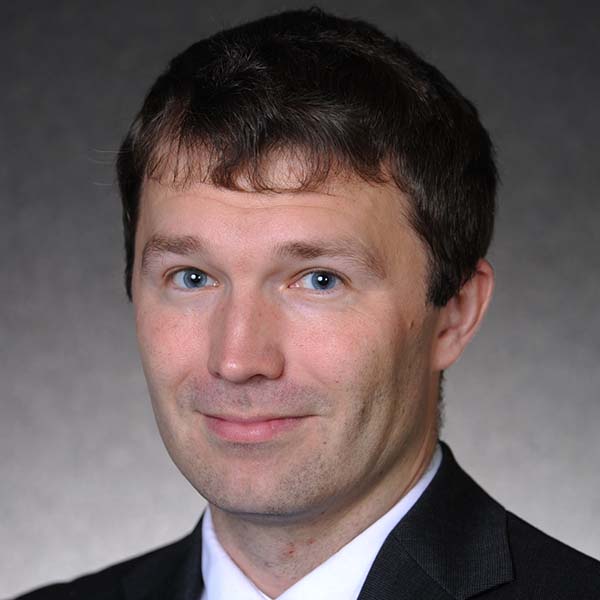Courses Taught
Fall 2020: ELEC 2651 Signal Processing
Spring 2020: ELEC 4133/5033- Advanced Electromagnetic Fields (Fields II)
Fall 2019: ELEC 3133 - Electromagnetic Fields (Fields I)
Fall 2019 ELEC 1201 - Introduction to Electrical Engineering
Spring 2019: ELEC 4133/5033 Advanced Electromagnetic Fields (Fields II)
Fall 2018: ELEC 3133 - Electromagnetic Fields (Fields I)
Spring 2018: ELEC 4133/5033 - Advanced Electromagnetic Fields (Fields II)
Fall 2017: ELEC 5433 - Fundamentals and Applications of Plasmas
Fall 2016: ELEC 5133 - Electromagnetic Radiation and Antennas (Fields III)
Spring 2016: ELEC 4133/5033 - Advanced Electromagnetic Fields (Fields II)
Fall 2015: ELEC 3133 - Electromagnetic Fields (Fields I)
Spring 2015: ELEC 4133/5033 - Advanced Electromagnetic Fields (Fields II)
Spring 2015: ELEC 5433 - Fundamentals and Applications of Plasmas
Fall 2014: ELEC 5133 - Electromagnetic Radiation and Antennas (Fields III)
Fall 2014: ELEC 3133 - Electromagnetic Fields (Fields I)
Spring 2014: ELEC 4133/5033 - Advanced Electromagnetic Fields (Fields II)
Fall 2013: ELEC 5433 - Fundamentals and Applications of Plasmas
Fall 2013: ELEC 3133 - Electromagnetic Fields (Fields I)
Spring 2013: ELEC 4133/5033 - Advanced Electromagnetic Fields (Fields II)
Fall 2012: ELEC 3133 - Electromagnetic Fields (Fields I)
Spring 2012: ELEC 3133 - Electromagnetic Fields (Fields I)
Spring 2012: ELEC 5832 - Fundamentals and Applications of Plasmas
Fall 2011: ELEC 4133/5033 - Advanced Electromagnetic Fields (Fields II)
Fall 2011: BIOE 5020 - Quantitative Methods (Linear Algebra Module)
Spring 2011: ELEC 4133/5233 - Advanced Electromagnetic Fields (Fields II)
Fall 2010: ELEC 4133/5233 - Advanced Electromagnetic Fields (Fields II)
Fall 2010: BIOE 5020 - Quantitative Methods (Linear Algebra Module)
Spring 2010: ELEC 5832 - Fundamentals and Applications of Plasmas
Course Descriptions
ELEC 3133. Electromagnetic Fields.
This is the first course in fundamental electromagnetic phenomena offered in the department. Basic material is covered, including: vector analysis in generalized coordinates, Maxwell's equations postulated for free space and extended to material regions and boundary conditions, uniform plane waves for free space and for materials, and static and quasi-static electric and magnetic fields. Prereq: ELEC 2132, MATH 3195, 2421 and PHYS 2331.
ELEC 4133/5033. Advanced Electromagnetic Fields.
This is the second course in fundamental electromagnetic phenomena offered in the department. Topics include: Poynting’s power theorem, reflection and transmission of uniform plane waves in layered media, two-conductor transmission lines, rectangular wave guides, Smith Chart elements of radiation ands antenna theory. Prereq: ELEC 3133. Graduate students wanting to receive graduate credit should enroll in EE 5033 and will be required to write a report on a current research article in addition to regular course work.
ELEC 5133. Electromagnetic Radiation and Antennas.
Solution of inhomogeneous wave equation. Radiation fields of elementary dipole, linear wire antenna, uniform and non-uniform linear arrays. Array synthesis. Farzone field patterns, directivity and beamwidth. Diffraction fields of aperture sources, horn antenna, conic surface reflector sources, lens antenna. Ray tracing methods. Transient-receive link. Selected Topics. Prereq: ELEC 4133, graduate standing and permission of instructor.
ELEC 5433 (Previously ELEC 5832). Fundamentals and Applications of Plasmas
This course provides an introduction to plasmas, also known as the fourth state of matter, in nature and industry. Topics covered include single particle motion, plasma kinetic and fluid theory, cold and warm plasma models, and interaction of electromagnetic waves with plasmas. Applications ranging from space sciences to medicine will be explored.
BIOE 5020. Quantitative Methods for Bioengineers I
This course provides an introduction to graduate level mathematics and numerical analysis as used in bioengineering. After a review of undergraduate concepts, it covers discrete systems, transforms and numerical methods as used in imaging, physiological modeling, and patient-specific computational simulation. Prereq: Graduate standing in Bioengineering.
